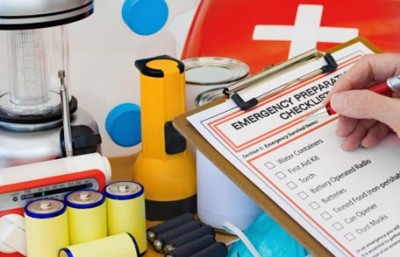NSU Newsroom
SharkBytes
Horizons
This version of NSU News has been archived as of February 28, 2019. To search through archived articles, visit nova.edu/search. To access the new version of NSU News, visit news.nova.edu.
This version of SharkBytes has been archived as of February 28, 2019. To search through archived articles, visit nova.edu/search. To access the new version of SharkBytes, visit sharkbytes.nova.edu.
Be Ready, National Preparedness Month is Here!
 Source: Centers for Disease Control and Prevention
Source: Centers for Disease Control and Prevention
Would you be ready if there were an emergency?
September 2014 marks the eleventh annual National Preparedness Month, sponsored by the Federal Emergency Management Agency in the US Department of Homeland Security. One goal of Homeland Security is to educate the public about how to prepare for emergencies, including natural disasters, mass casualties, biological and chemical threats, radiation emergencies, and terrorist attacks.
The Emergency Preparedness and Response offers additional information and resources under topics such as hurricane preparedness, extreme heat, and bioterrorism. CDC continually updates information on recent outbreaks and incidents, and lists emergency resources for the general public as well as for clinicians and public health professionals.
Get an Emergency Kit
If disaster strikes your community, you might not have access to food, water, or electricity for some time. By taking time now to prepare emergency water supplies, food supplies and a disaster supplies kit, you can provide for your entire family.
Review the items recommended for a disaster supplies kit or print the Homeland Security Emergency Supply checklist.
Make an Emergency Plan
Make plans with your family and friends in case you’re not together during an emergency. Discuss how you’ll contact each other, where you’ll meet, and what you’ll do in different situations. Read how to develop a family disaster plan or fill out the Homeland Security Family Emergency Plan.
Ask about planning at your workplace and your child’s school or daycare center. The US Department of Education gives guidelines for school preparedness. Workers at small, medium, and large businesses should practice for emergencies of all kinds. See Ready Business for more information.
Be Informed
Being prepared means staying informed. Check all types of media – Web sites, newspapers, radio, TV, mobile and land phones – for global, national and local information. During an emergency, your local Emergency Management or Emergency Services office will give you information on such things as open shelters and evacuation orders. Check Ready.gov community and state information to learn about resources in your community.
Get Involved
Look into taking first aid and emergency response training, participating in community exercises, and volunteering to support local first responders. Contact Citizens Corps, which coordinates activities to make communities safer, stronger and better prepared to respond to an emergency situation. Contact the Medical Reserve Corps, (MRC). MRC are community-based units and function as a way to locally organize and utilize volunteers who want to donate their time and expertise to prepare for and respond to emergencies and promote healthy living throughout the year.